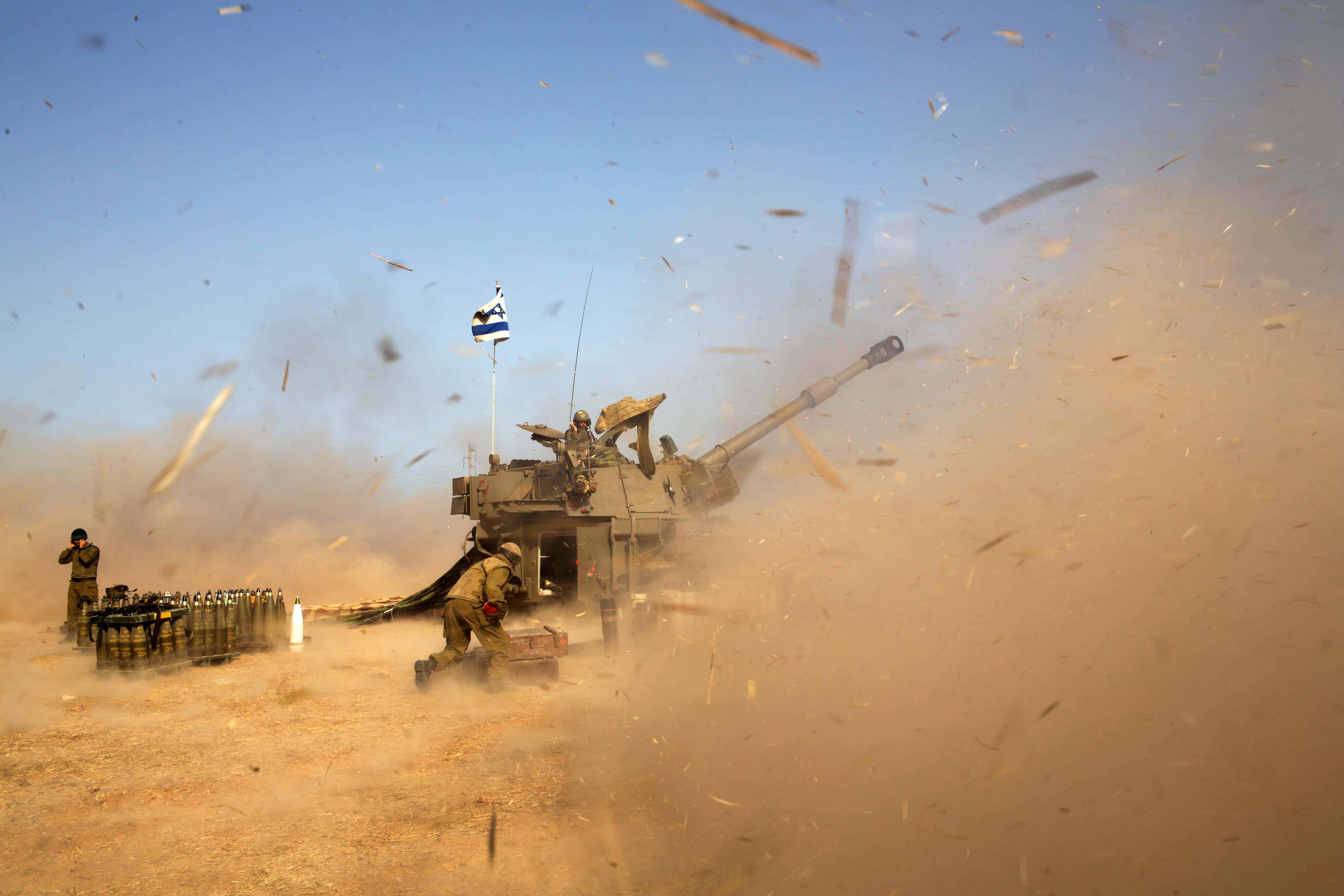IN THE GAZA STRIP — This is not my first time in Gaza, but it is my first time here during a military operation. It is disorienting. The distances are so close.
The Gaza militants lob rockets from palm groves and melon fields as you’re driving by. “Oh, look, another one,” you think. You get out of the car, take an iPhone photo of the vapor trail and start counting — one Mississippi, two Mississippi — as you would for lightning, followed by a thunder clap, to gauge distance. But in this case you’re counting to hear whether the rocket is intercepted by Israel’s Iron Dome (kind of a puff sound, with white smoke) or lands just over the Gaza border in Sderot (more of a concussion) or is far, far away and cannot be heard.
Then our police scanner crackles, and my Palestinian fixer, Islam Abdul-Kareem, tells me, “Sirens in Jerusalem.” I phone my wife at our home there, and she says, “Yeah, we just heard two big booms.”
It is all very intimate. We visited a house in the refugee camp of Maghazi that had been hit by an Israeli air strike a few hours earlier. While I was interviewing the Nawasrah family members who survived, one of the cousins opened up a plastic bag and handed me a little finger.
I didn’t flip out, only because it was the second time that day someone had shown me something like this. After the airstrikes, the Palestinians collect the dead from the debris, and sometimes the dead are no longer whole, so they gather what they can for burial. Like a finger tip.
Are the Nawasrah family members terrorists? I honestly don’t know. We always ask, “Are you resistance? Are you Hamas?” They usually say no. But sometimes a neighbor, or someone in the crowd, will tell us that the fellow who lived in the house was maybe a Hamas operative.
It is a very aural military operation, too. There are many whooshes, kabooms, window rattlings and thuds you can feel in your teeth. But mostly there is a constant whine, like mosquitoes in a small room. These are the Israeli drones.
Little kids are expert at recognizing the sounds. I didn’t believe this at first, but it is true. In Beit Hanoun, we were gathered with a crowd of gawkers, all of us staring at a house down the lane that had been hit by a small, non-lethal missile, what Israeli military calls “the knock on the door” that signals to the occupants to get out. We all had our mobile phones out, ready to snap a picture once the house was destroyed by a serious missile.
Suddenly, behind us, maybe a kilometer away, we heard a rushing galloping sound: Vvippps! My shoulders shot up to my ears.
Rocket. Outgoing. Close. A child told me: “Grad.” I wrote it down in my notebook. He was probably about 8.
One afternoon, we were talking to a gathering of middle-aged men who were sitting out the battle and the heat, fasting during the day because it is Ramadan (and so nobody is smoking, eating or drinking during daylight). I asked them if they thought the war, or whatever one calls this, would go on long.
“Who cares?” answered Abu Ahmed, 46, an out-of-work construction worker. I asked what he meant. “We lived in hell before, we will live in hell again,” he said. The sleepy guys on the stoop just nodded in the heat.
Yup. Hell.
Gaza is a young place. Usually there are children everywhere underfoot. But not so much now. During the day, you see men in the mosques and in the markets, but very few women. They are all cooped up at home in their airless apartments, waiting for the six daily hours of electricity to turn the fans.
A colleague in Washington asked me what the Palestinians do during an air strike. Do they run to the bomb shelters? I think about this. It is not a dumb question. There aren’t any shelters or sirens. The Palestinians don’t really do anything. When they run around is afterward.
© 2014, The Washington Post






